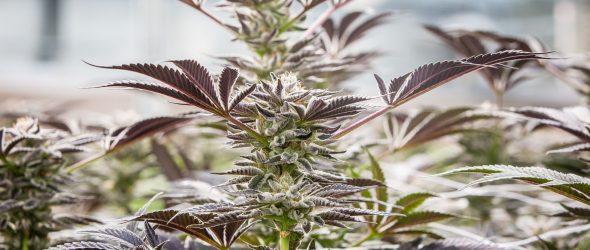 https://cannabisexaminers.com/wp-content/uploads/2020/06/new_times_-_cultivation_center_-_slideshow_-_jacob_tyler_dunn-001.jpg
https://cannabisexaminers.com/wp-content/uploads/2020/06/new_times_-_cultivation_center_-_slideshow_-_jacob_tyler_dunn-001.jpg
New poll numbers suggest that most Arizonans want to be legally allowed to buy, use, and grow cannabis under state law, just like most of its neighboring states.
The poll, by HighGround Public Affairs Consultants, was conducted among 400 likely voters between May 18 and May 22. The numbers reflect how far Americans, in general, have come in their thinking about marijuana prohibition over the past few years. And it reveals something of a sea change in Arizona conservatives’ view on cannabis.
The legalization measure proposed for 2020, Smart and Safe Act Arizona, is supported by 65 percent of voters, plus or minus the poll’s margin of error of 4.9 percent. That’s substantially higher than 2016’s failed effort, Prop 205, ever polled.
Democrats and Independents, naturally, support the initiative in overwhelming numbers.
Yet even older folks and Republicans are in favor of this year’s cannabis legalization initiative, according to the poll.
Fifty-six percent of Republicans definitely or probably will be voting for it; 63 percent of voters aged 50 to 64 were in the category of definitely or probably, as were 55 percent of voters 65 and older.
Support from the latter category was a “bit of surprise,” said Paul Bentz, HighGround’s vice president of research and strategy. The firm noted in its release about the findings that it hasn’t been hired by any group related to the initiative or its opposition.
The 65-and-older group usually polls at 50 percent support or less for marijuana legalizations, Bentz said. Besides the country’s overall momentum toward legalization, the Smart and Safe campaign seems to have worked out the “nitty-gritty” details that have bogged down other legalization campaigns in Arizona and other states, he said, smoothing over worries that some Republicans have by banning the sale of THC-infused gummies and other candy-like edibles that appeal to kids.
“The Highground poll is encouraging and tracks with what we know — Arizonans are ready to legalize marijuana,” said Stacy Pearson of Strategies 360, which is running the campaign on behalf of its sponsors, a group of the state’s legal medical marijuana dispensaries. “And in this economic environment, the need for new tax revenue is even more important to our state.”
Smart and Safe would allow Arizonans 21 and older to legally possess up to an ounce of marijuana, five grams of which can be in the form of concentrates. Possessing between one and 2.5 ounces would be a petty offense only. Arizonans could grow six marijuana plants, or a maximum of 12 if two people live in the home. The proposal also requires penalties for minors who possess or buy cannabis; caps the number of dispensaries to 150 initially; provides for “social equity” licenses for communities harmed by prohibition; and gives the Department of Health Services oversight of the adult-use program.
The initiative needs 237,645 valid voter signatures to qualify for November’s ballot. Pearson said the campaign is “on track to turn in more than 400,000 signatures next month.”
Collecting signatures has been tougher because of the pandemic, and a bid to the state Supreme Court to allow electronic signature gathering failed. But Bentz said he still believes the campaign’s in good shape.
“I think they’re going to make it now,” Bentz said. “They’re padding it as much as possible.”
The best bet to derail legalization at this point would likely be a legal challenge of some sort, he said.
Such a challenge could succeed if the initiative has an as-of-yet-unknown Achilles’ heel. In 2018, for instance, supporters of a plan to raise money for schools by taxing wealthy residents turned in more than 270,000 signatures, seemingly qualifying them for the ballot. But after a committee backed by the Arizona Chamber of Commerce sued, the state Supreme Court agreed the initiative’s wording was imprecise and kicked it off of the ballot.
Prop 205, which failed in 2016 by almost three percentage points but was similar in many ways to Smart and Safe, had iffy polling from the beginning. A poll the month before the November 2016 election showed no more than 50 percent in favor, and 40 against, with 10 percent undecided. The prop couldn’t poll more than about 40 percent with people 50 and older or Republicans.
But four years and a better-crafted bill appears to have made a big difference.
One potential shortfall for the poll: It didn’t ask what voters thought of legalizing home cultivation, an issue that industry insiders say has sometimes polled poorly among Arizona voters. Bentz agreed that the question might have pulled down the poll results “a little bit,” and said the firm didn’t leave out the question on purpose.
Like all elections, an element of the unknown remains, including how voters who split their tickets might vote on the cannabis initiative, Bentz said. The biggest “ticket splitters” are people who tell pollsters they’re going to vote for Democratic Senate candidate Mark Kelly, but also vote for President Trump’s reelection. Trump is trailing Biden by only two points, Bentz pointed out, while incumbent Senator Martha McSally is currently trailing Kelly by 10 points. The eight-point difference represents quite a few potential Trump-Kelly crossover votes, he said.
“I don’t know where those folks are on marijuana,” he said.
Another x-factor is the opposition. Opponents of Prop 205 got an early start, raising money and lobbying communities against the measure in 2015. The next year, they leaned on Governor Doug Ducey to help raise millions for ads that helped defeat Prop 205. But so far, opposition to Smart and Safe Act has been largely absent.

